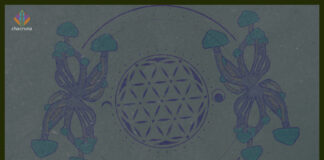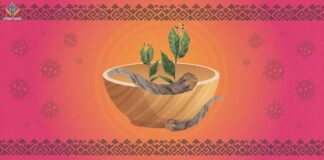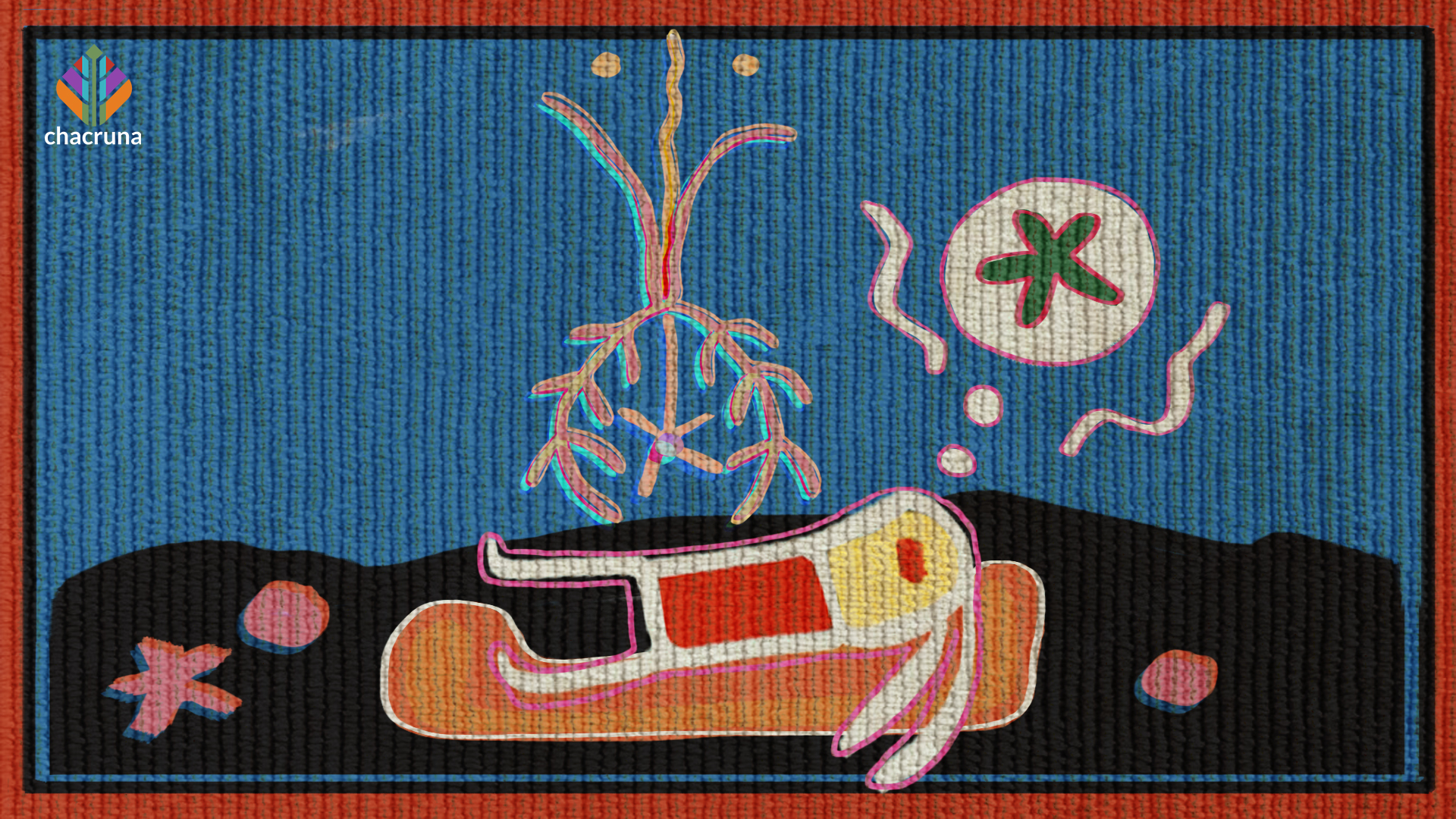Tracing the History of Marijuana in Mexico with Nidia Olvera Hernández
Jasmine Virdi interviews Nidia Olvera Hernández, a Mexican ethnohistorian, specializing in the history of psychoactive substances and drug poilices. In this article, Nida shares about some of her earlier research into the history of marijuana in Mexico, detailing cannabis’ arrival with Span-ish colonizers who intended to use the plant for industrial purposes, and how the conception of the plant shifted over time, eventually coming to be referred to as “marijuana” as opposed to “hemp.”
How Colombian Yagé Communities Confronted the COVID-19 Pandemic
Amazonian communities in Colombia were hit hard and fast by the advent of Covid-19 to their territories. These communities were forced to adapt the ways in which they use plant medicines, particularly Yagé, and dive deep into their ancestral knowledge to uncover ways to protect themselves from the worst effects of the pandemic. What resulted was a show of resilience, pride, and unification on the part of Indigenous groups to confront this crisis.
Researchers Demand Reparations to Mazatecs for Mushroom “Spirit”
There is an emerging multi-billon dollar market for psychedelic therapies as the research becomes more mainstream. As for-profit companies begin to commodify psilocybin, researchers and activists demand these companies pay reparations for the stolen knowledge from the Mazatec people and engage in a reciprocal relationship with Indigenous peoples.
Supporting Indigenous Autonomy Means Participating in a Story of Relationship
The Yanesha of Peru, along with other Amazonian groups, engage with cultural tourism in response to a global market that relentlessly reduces their choices. Greater Indigenous autonomy yields not only higher biodiversity, but also allows for community-led solutions to social, ecological, and economic problems. Supporting Indigenous autonomy involves stepping into a story of relationship, seeing the world as a society of beings instead of a collection of detached objects, and learning to listen when the forest speaks.
Preserving Entangled Ayahuasca
This text was originally a conference paper in Spanish as well as an attempt to bridge what matters to medicine women and men, ethnographical experience and feminist theory.
Ayahuasca, Healing and Cognitive Justice
In the first part of this series on the Epistemics of Ayahuasca, Medical Anthropologist Adam Aronovich presents insights based on his long term qualitative research in the rainforest, framing them within ways of being and knowing prevalent amongst amazonian amerindian groups and the ongoing eradication of non-hegemonic epistemologies by the dominant culture.
Coronavirus and Evolving Ceremonial Practice Among Ayahuasca Practitioners in the US
Jasmine Virdi explores how ayahuasca facilitators have adapted and changed their practices and ceremonial protocols to meet the challenges that have emerged as a result of the global coronavirus pandemic.
How Did Ayahuasca, Indigenous Diversity and Conservation Become Commodities in the...
In this article, anthropologist Alhena Caicedo analyzes how the moral imperative of celebrating cultural diversity and conserving nature in the Amazon have also become a tool for renewing certain stereotypes about indigenous peoples and updating colonial power relations and economic and political interventions. She argues that understanding what is said and done in the name of ayahuasca, indigenous people and Amazon conservation helps us recognize and render visible the political and economic implications of the current global phenomenon of ayahuasca expansion.
Coronavirus, Ayahuasca, and Indigenous Resilience
Jasmine Virdi explores how coronavirus has impacted the ayahuasca drinking indigenous groups of the Amazon basin, taking a look at the broader implications of coronavirus for Amazonian peoples such as the loss of elders, the threat of genocide, the return to traditional plant medicine, and the vital importance of reciprocity.
Growing Up with Sacred Plants
Diana Negrín, Ph.D, reflects on growing up in Guadalajara and listening in to her father, Juan Negrín, pioneer researcher of the Wixarika culture, in conversation about the intersection between Western and Indigenous scientific knowledge with friends from the California psychedelic community like Sasha Shulgin.














